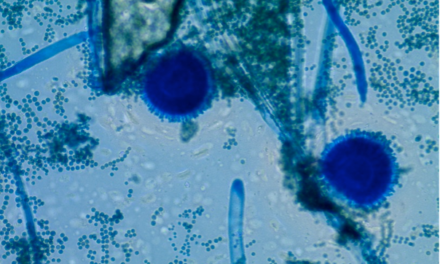A groundbreaking study conducted by Université Laval and the Institute of Nutrition and Functional Foods (INAF) has unveiled the remarkable potential of cranberry extracts in promoting gut health and combatting chronic diseases such as diabetes and cardiovascular ailments. Led by Professor Yves Desjardins from the Faculty of Agriculture and Food Sciences, the research sheds light on the profound impact of cranberry polyphenols and oligosaccharides on the intestinal microbiota.
Published in the esteemed journal npj Biofilms and Microbiomes, the study revealed that cranberry extracts could substantially improve the composition of the gut microbiota after just four days of usage. Jacob Lessard-Lord, a postdoctoral fellow at INAF, expressed astonishment at the efficacy of cranberry extracts in stimulating beneficial bacteria such as Bifidobacterium, known for its role in reducing the risk of diabetes and cardiometabolic diseases.
Traditionally associated with a plethora of health benefits, cranberries and berries owe their therapeutic properties to their rich polyphenol content, particularly tannins, and oligosaccharides. These compounds have been linked to various bioactivities, including improved gut health.
One of the key findings of the study was the cranberry extract’s ability to boost the abundance of Akkermansia muciniphila, a bacterium crucial for maintaining intestinal mucosal integrity and mitigating inflammation. This is particularly significant in counteracting the adverse effects of a Western diet, which is notorious for disrupting the balance of the gut microbiota and compromising the intestinal barrier.
Professor Desjardins emphasized the role of the intestinal barrier in protecting against metabolic endotoxemia, a condition triggered by the passage of harmful substances from the gut into the bloodstream, leading to chronic inflammation and metabolic disorders like diabetes and cardiovascular diseases.
The study involved approximately forty participants recruited from INAF, who consumed cranberry supplements twice daily for four days. Samples of plasma, urine, and stool were collected before and after the supplementation period, revealing promising changes in the gut microbiota composition.
Despite the universally positive impact observed in the participants, the study highlighted individual variability in response to the cranberry extracts. Future research endeavors will aim to elucidate the specific microbiota signatures that exhibit the most favorable responses to cranberry supplementation.
Looking ahead, the research team is eager to explore the long-term effects of cranberry extracts on gut health and chronic disease prevention. The findings offer hope for integrating cranberry extracts into dietary interventions aimed at modulating the inflammatory pathway and improving the prognosis of chronic diseases.
The study was authored by Jacob Lessard-Lord, Charlène Roussel, Joseph Lupien-Meilleur, Pamela Généreux, Véronique Richard, Valérie Guay, Denis Roy, and Yves Desjardins.
For more information, the full study titled “Short term supplementation with cranberry extract modulates gut microbiota in human and displays a bifidogenic effect” can be found in npj Biofilms and Microbiomes (2024).












